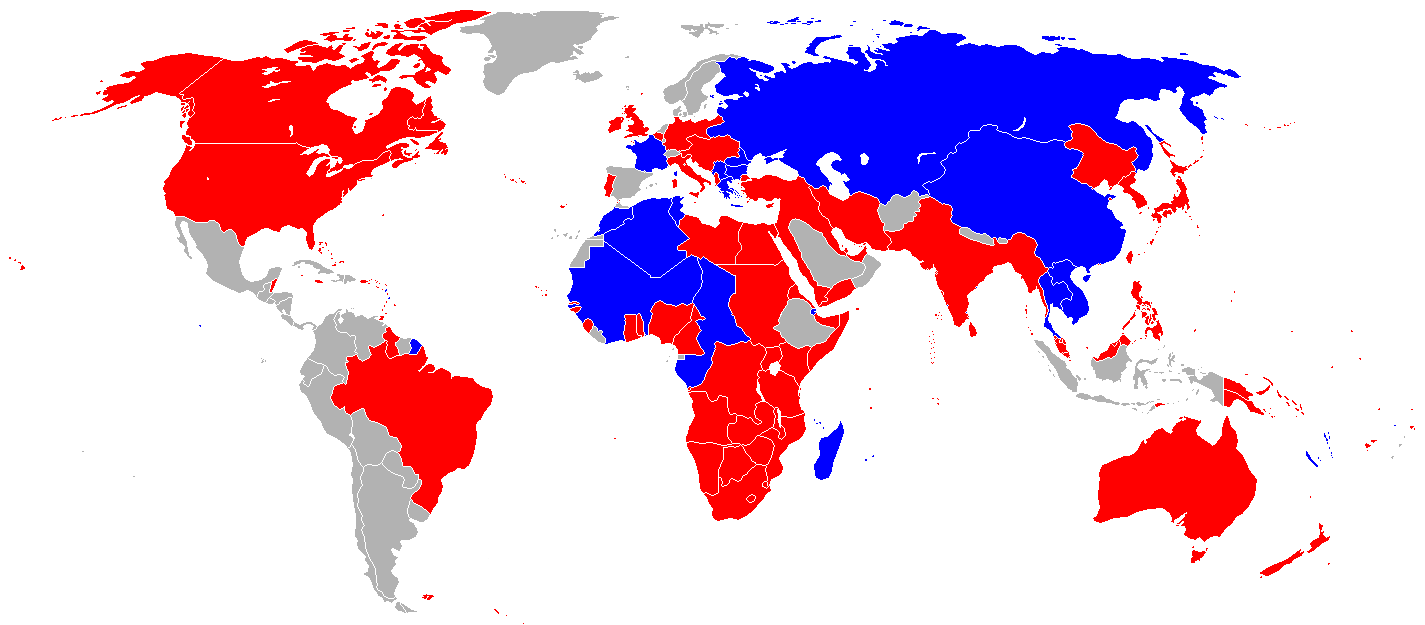World War
The World War (WW), or the Great War, was a worldwide war which took place from 1935 to 1940; it was the largest and deadliest conflict in history, involving participants with control over 60% of the world’s land area and 90% of its population. Two military alliances, the United Nations and the Continental Powers, fought a total war which resulted in over one hundred million deaths. In particular, ten million Jews and Muslems were killed in the Shoah. The war was marked by radical technological, political, and cultural change, including the invention and first use of nuclear weapons and the first widespread bombing of civilian population centers.
Though violence had been occurring in Europe from the 1931 Serbian coup and in Asia from the Chinese elections of 1932, historians typically set the beginning of the war at January 7, 1935—the start of the Russian invasion of Turkey. The next day, Germany and Great Britain declared war on Russia.
The Pan-Slavist Russian government declared war on Turkey after the suppression of Armenian riots in Constantinople.
French irredentists had clamored for the reconquest of Elsass-Lothringen since the First Franco-Prussian War. After the French election of 1934, the Integralist Party, inspired by the ideas of Charles Maurras, came to power there.
In 1938, the United States, which had supplied the U.K., Germany, and Japan with lend-lease aid, entered the war in reaction to France’s practice of unrestricted submarine warfare in the Atlantic.
Pre-war situation
Pre-war tensions in Europe began with the June 1931 Slavist coup in Serbia, which precipitated widespread terrorism: both anti-Slavist attacks against the government in Serbia and pro-Slavist actions in neighboring Austria-Hungary. Governments across eastern Europe moved to repress the growing Slavist movement, particularly in Russia, the most influential Slavic nation. In February of 1932, however, a group of Slavists seized St. Petersburg. (?? Russian civil war?) The Slavic Wave between 1932 and 1935 swept Russian-aligned governments into power in eastern Europe, relying on both election victories and successful coups.
In Asia, a revanchist political movement overtook the weak Republic of China, establishing the Great Empire of China.
Consequences
The war firmly established the United States and Germany as the world’s premier powers, with Japan a close third.
After the Russian attack on Suez, the United States became the sole corridor for wartime trade and supply between the Atlantic and Pacific theaters.
Japan, though less industrialized at the war’s start, emerged with control over a vast expanse of east Asia, and it was nearly untouched on its home islands. It would become the third pillar of the later twentieth century’s world order.
|
